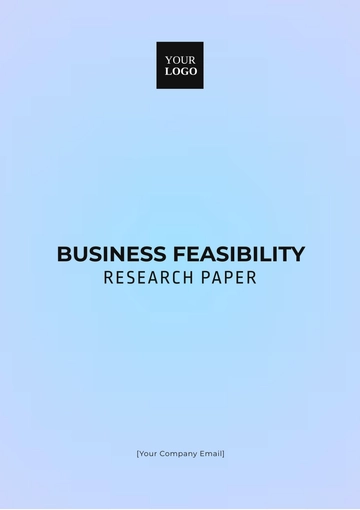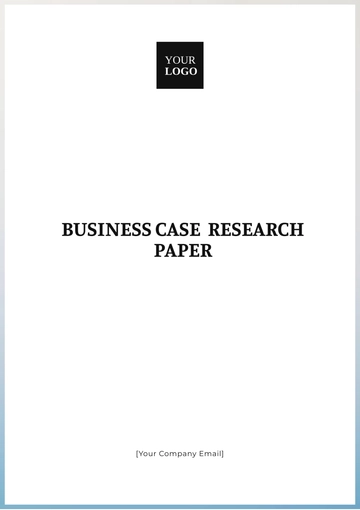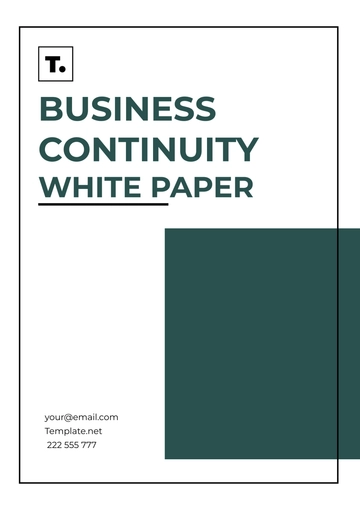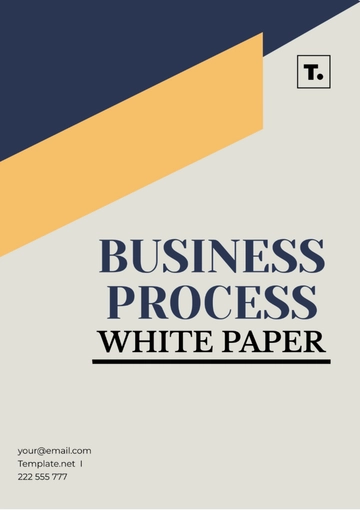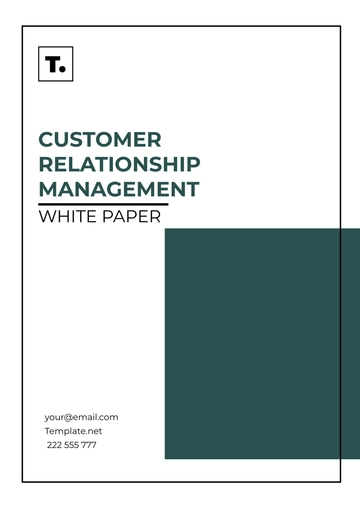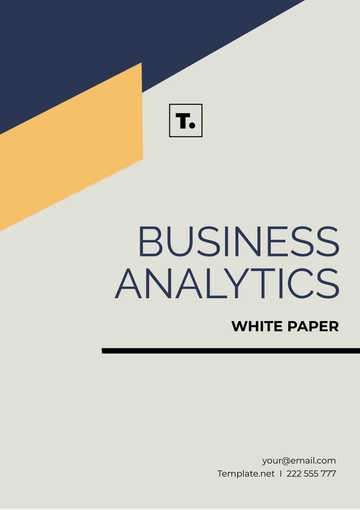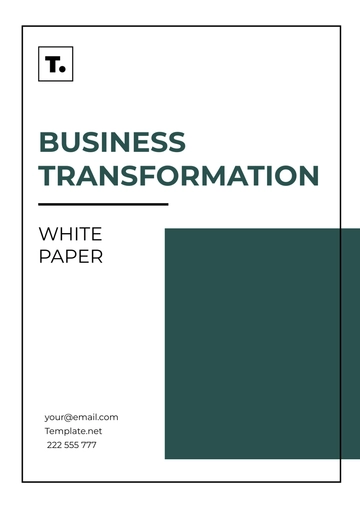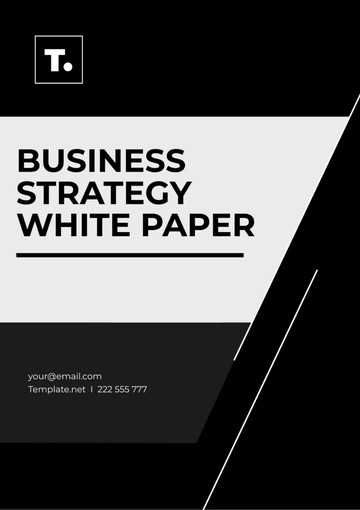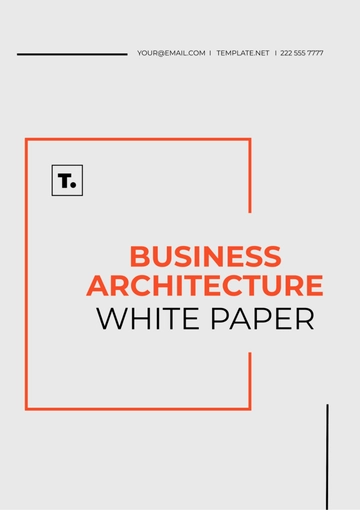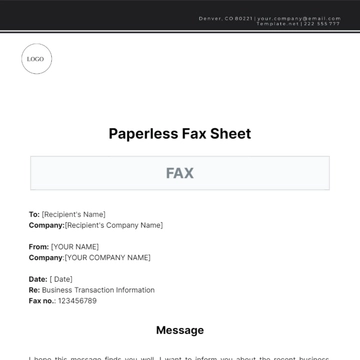Free Business Model White Paper

I. Executive Summary

Overview: Our business model centers around providing AI-powered customer relationship management (CRM) solutions for small and medium-sized enterprises (SMEs) in the retail sector. By leveraging advanced machine learning algorithms, our platform streamlines sales processes, enhances customer engagement, and boosts overall revenue.
Key Findings: Through market research and customer surveys, we identified a significant gap in affordable yet effective CRM solutions tailored for SMEs in the retail industry.
Recommendations: We recommend focusing on strategic partnerships with industry associations and implementing targeted digital marketing campaigns to drive initial market penetration.
II. Problem Statement
Primary Problem: SMEs in the retail sector struggle to find CRM solutions that are affordable, scalable, and user-friendly, leading to inefficiencies in sales management and customer retention.
Relevance: In today’s competitive market, customer experience is paramount, and businesses that fail to adopt modern CRM tools risk losing market share to more agile competitors.
III. Market Analysis
Market Size: The global CRM market for SMEs in the retail sector is estimated at $X billion, with a projected CAGR of X% over the next five years.
Growth Trends: Increasing adoption of cloud-based CRM solutions and the growing emphasis on data-driven decision-making are driving market growth.
Customer Demographics: Our target customers are SMEs in the retail sector with annual revenues ranging from $X to $X million, typically comprising boutique stores, specialty retailers, and e-commerce startups.
Industry Pain Points: Key pain points include manual data entry, lack of integration between sales and marketing tools, and difficulty in analyzing customer behavior patterns for targeted marketing campaigns.
IV. Value Proposition
Unique Value: Our AI-driven CRM platform automates lead scoring, predicts customer buying patterns, and offers personalized recommendations, enabling SMEs to optimize sales strategies and improve customer loyalty.
Differentiation: Unlike traditional CRM systems that require extensive manual configuration, our platform offers out-of-the-box functionality with seamless integration capabilities, reducing implementation time and costs for businesses.
V. Revenue Streams
Primary Product Sales: Licensing fees for access to the CRM platform and additional modules based on usage tiers.
Subscription Services: Monthly or annual subscription plans offering premium features such as advanced analytics and custom reporting.
Affiliate Marketing: Partnering with industry influencers and CRM consultants to promote our platform and earn referral commissions.
Other: Training and consulting services for businesses requiring tailored CRM implementation and optimization.
VI. Cost Structure
Cost Type | Impact on Revenue |
|---|---|
Software Development | High |
Sales and Marketing | Medium |
Customer Support | Low |
VII. Competitive Analysis
Competitors: Key competitors include established CRM providers such as Salesforce, HubSpot, and Zoho CRM, each with strengths in enterprise scalability or marketing automation.
Strategies: Competitors concentrate their efforts on establishing strong brand recognition, developing comprehensive sets of features, and facilitating integrations with third-party applications as key strategies to capture a larger share of the market.
Competitive Advantage: Our platform’s simplicity, affordability, and AI-driven insights offer a compelling value proposition for SMEs, positioning us as a niche player catering specifically to the retail sector’s unique needs.
VIII. Financial Projections
Revenue Forecast: Projected revenue of $X million in the first year, growing at a CAGR of X% over the next three years based on conservative market penetration estimates.
Profitability: We expect to reach a state of profitability by the conclusion of the second year, targeting a gross margin of X%.
Key Metrics: ROI analysis indicates a payback period of X months for customer acquisition costs, highlighting the efficiency of our sales and marketing strategies.
IX. Conclusion
Summary: In conclusion, our business model offers a disruptive solution to the CRM challenges faced by SMEs in the retail sector, poised for rapid market adoption and sustainable growth.
Future Development: We plan to expand our feature set with AI-driven predictive analytics, integrate with popular e-commerce platforms, and explore international market opportunities in targeted retail segments.
- 100% Customizable, free editor
- Access 1 Million+ Templates, photo’s & graphics
- Download or share as a template
- Click and replace photos, graphics, text, backgrounds
- Resize, crop, AI write & more
- Access advanced editor
Uncover the intricacies of your business model with Template.net’s Business Model White Paper Template. Designed for detail and insight, this editable and customizable template is effortlessly editable in our Ai Editor Tool and Illustrates business frameworks, revenue models, and value propositions clearly, guiding stakeholders and investors toward understanding and confidence.


